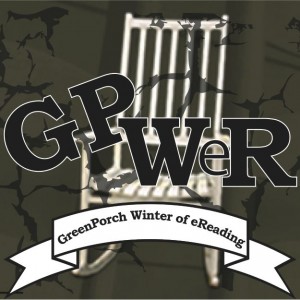 Just like the rest of the internet, the eBook eVerse consist hugely of porn. It is sorta the plankton of the eVerse — the simplest life form that feeds the mindless that in turn feed the suckers and bottom-dwellers who in turn feed the commercial fiction writers who feed the how-to-write-commercial-fiction writers who feed the I’m-too-sexy literati who feed themselves (as they cannibalize the top echelon with scathing reviews).
Just like the rest of the internet, the eBook eVerse consist hugely of porn. It is sorta the plankton of the eVerse — the simplest life form that feeds the mindless that in turn feed the suckers and bottom-dwellers who in turn feed the commercial fiction writers who feed the how-to-write-commercial-fiction writers who feed the I’m-too-sexy literati who feed themselves (as they cannibalize the top echelon with scathing reviews).
Hey, I didn’t create the life cycle. I’m just stating the fact that stuff always grows out of… how do the French say it… shit.
It’s not pretty, people. But with a little effort we can rise above the manure zone and better ourselves. But how, you may ask? Well here at the Green Porch we’ll tell you.
The Best Five Ways to Filter Out Porn From Your eBook Searches
5.) Search at Smashwords: Smashwords has a great option for their search engine allowing you to filter “adult content.” This used to be called the prude filter, but I guess some prude got offended by it. While this filter won’t save you from trashy content, it will save you from porn (or as they call it in the writing biz, “erotica”). The other nice thing about Smashwords is that they allow you to download content in all formats. So whether you use a computer, smartphone, Kindle or Nook, you can access eBooks in a readable format.
4.) Avoid searching for stuff via “Most Popular”: Almost every search engine for every eBook retailer will have an option to search for “most popular.” This ends up meaning most pornographic or mind-numbing about 90% of the time. (Again, there is a bunch more plankton in the life cycle than whales). Experiment. Sometimes searching for “highest rated” can deliver better results. Amazon is evolving to factor the number of reviews as well as the number of stars. So an eBook with seven 5-star reviews will rank lower than an eBook with thirty reviews averaging around 4.5 stars.
3.) Search for genre whenever possible: All of the best eBook retailers and free sites are improving this function. (See this old post for the top sites.) For example. If you, like my wife, enjoy romance novels with more love and less raunch then try looking for sub-genre categories such as “Regency.”
2.) Forums/threads/lists: When these less advanced means of searching through filth let you down, don’t fret! There are still a few options left. Amazon (as well as many other eBook retailers) have social aspects now built into their websites. These are quickly become critical means of narrowing your search. Goodreads has Listopia while Amazon has Listmania. When searching genres on Amazon you will notice related Listmania topics on the left navigation bar. Look for stuff like “clean romances” “non-smutty” “escape the ravenous hordes of filth-mongering wretches” or whatever applies. Amazon also has forums. Find these on any related product page and then start snooping around for a thread discussing the kind of stuff you like.
1.) Tags: Finally, one option remains: Narrow your search by using tags or keywords. Again, many sites use these. Amazon doesn’t make theirs very convenient, but they can be helpful. From any product page (of a specific book) you can scroll down below the reviews and see “tags.” Click on one of these tags and you will enter a parallel Amazon universe that allows you to search for products via tag. Using our romance example, you can search for eBooks tagged with stuff like, “clean romance,” “sweet romance,” “non-smutty,” “Christian romance,” etc.[divider]
If all else fails you can hunt down eBook bloggers that fit with your anti-filth sentiments and follow their recommendations. This is a more patient route of course. We never said it would be easy. But advancing up the food chain never is.